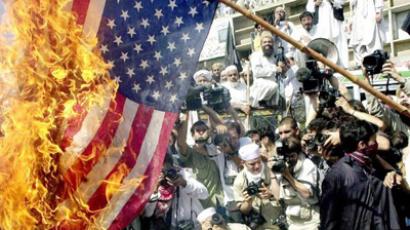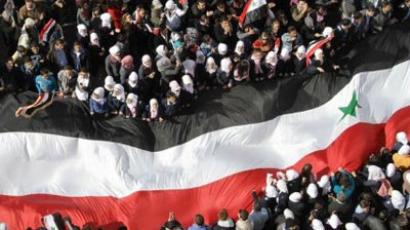Arab Spring part of ‘US divide-and-conquer plan’
The fall of Libya, the riots in Syria, the media attack on Iran are all parts of a global decades-old American plan to take control of all Middle East, believes regional consultant Peter Eyre.
He believes that the operation went into action after 9/11. The terrorist attack on America meant that “no one is going to stop the US; it can bomb wherever it wants.”The expert says a classified Pentagon document outlined the attack on the region. “It said ‘We are going to take out seven countries in a period of five to 10 years’. And on that list was Libya, Syria, Lebanon, Yemen, Somalia. And of course the final target was Iran. This is a very well-planned exercise,” Eyre told RT.“It’s all about geopolitics. It has nothing to do with Iranian nuclear capabilities or whatever,” he added.Eyre says the whole notion of Arab Spring is in fact an orchestrated funneling of public dissent into a rebellion by special services.“Look at the Arab Spring. You get people take to the streets en masse. Why are they out on the street? It’s because they’re frustrated with their government. It’s at this vulnerable moment when the special forces and secret service operatives intermingle with the crowd and in some cases become the ‘snipers on the rooftops’ that take out selected innocent victims. The people in the crowd then believe that the government is carrying out this action – and it becomes a rebellion,” he explained.And Lindsey German from the Stop the War Coalition told RT before America plans another intervention, they should consider the far greater consequences that would beset the entire region. “We should learn the lesson of Libya, that thousands and thousands of civilians died after the NATO bombing began, and NATO bombing or any other military intervention in Syria will have even more serious consequences because of the regional setup, because the whole question of Iran, the whole question of Israel, will all come to the fore, and I believe will lead to a much more substantial war in the region, which is the last thing that anybody really needs.”














